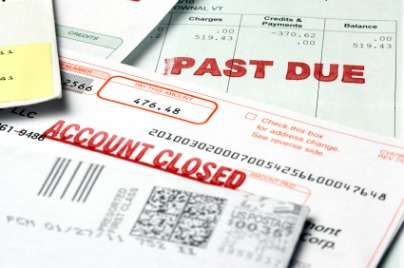A tough economic milieu, aggravated by rising interest rates and inflation, has set the scene for South Africa to become a hotbed of debtors and bad debt. As a result, I have been approached in recent months by numerous businesses, both in the service and retail supply sectors, to assist them with the recovery of bad debt. In many cases, this bad debt constricted cash flow that was essential to the survival of the client. In other words, the failure to collect on this debt would inevitably lead to the client being unable to pay its creditors, which would, in turn, impact those creditors’ cash flow, eventually leading to a vicious circle of bad debt.
Now, more than ever before, it is critical for businesses, both large and small, to ensure that they adopt an effective strategy to deal with debtors. Although it is nigh-impossible to eradicate bad debt altogether, I am firmly of the view that bad debt may be mitigated and minimized to a large extent if businesses simply adopt some practical measures to keep their debtors’ books in check.
1. Ensure that adequate records are kept and monitor incoming payments on a regular basis
You cannot measure what you cannot see. Adopting an effective strategy to deal with debtors is difficult, if not completely untenable, if proper records are not kept. Furthermore, a lost invoice, quotation, or delivery note may well be that critical cog which could mean the difference between winning a case against a recalcitrant debtor or suffering the injury of having a claim dismissed (which is often followed by the insult of having to pay the debtor’s legal costs).
2. Ensure that debt is collected timeously
It is no profound notion that one must strike while the iron is hot. Debt collection is no exception to this age-old adage.
The risks one may face if debt is left too long may include:
- Records being lost over time;
- Witnesses forgetting what happened or becoming unavailable to testify;
- Extinctive prescription of the debt;
- Debtors relocating;
- Debtors being liquidated or placed under Business Rescue;
An Age Analysis is an invaluable tool to gauge the health of one’s debtors’ book. Setting up hard and fast rules to deal with debtors once the debt reaches a specific age may have a profoundly positive effect on debt recovery and cash flow.
3. Have an agreement in place
It is said that good fences make good neighbours. When it comes to business transactions, a written agreement may be seen as the fence which ensures that vendor and client both operate within the appropriate parameters of their working relationship. Uncertainty regarding boundaries, obligations, and expectations may well present a convenient loophole for clients with unsavory intent to exploit.
Some useful questions which may be answered in an agreement are:
- What scale of costs will the debtor pay if the creditor is forced to take action?
- What are the payment terms? (i.e., C.O.D, 7 days, 30 days)
- Where will the parties accept service of legal process?
- What are the consequences of Breach of Contract either way?
4. Obtain sufficient information from potential clients
Every client is a debtor during the time that elapses between the delivery of an invoice and the remittance of payment. It is therefore critical that enough information be gleaned from each and every prospective client to ensure that effective recovery can take place if the working relationship takes a turn for the worse. Many a crestfallen creditor has bemoaned their difficulties in making a recovery due to insufficient information being obtained from the debtor before conducting business.
The amount of information required may differ from industry to industry, but some details are critical regardless of the nature of the industry. A few examples are:
- Full name;
- Registration number/identity number;
- Address;
- Contact numbers;
- Email address & Fax Number;
- VAT Number (if applicable);
Conclusion
In these tough economic times, bad debt and the number of debtors unable to pay their debts will necessarily be on the rise, but with some vigilance and proper management, it is possible to ensure that bad debt is kept to a minimum.












